Be an Effective Leader Through Writing
Whether it's crafting company memos, emails or even social media posts, how you communicate as a leader can make a massive impact on your team's motivation, engagement and overall success.
Jeff Novak
9/9/20242 min read


Whether it's crafting company memos, emails or even social media posts, how you communicate as a leader can make a massive impact on your team's motivation, engagement and overall success.
Here's how you can lead authentically and effectively through your writing:
Find Your Voice: Just like in a conversation, your writing should reflect who you are as a leader. Whether you're laid-back and approachable or more formal and authoritative, let your unique voice shine through in your writing. Don't try to mimic someone else's style; authenticity is about being true to yourself.
Be Transparent and Honest: Transparency breeds trust. When you're communicating with your team, whether it's sharing updates, addressing challenges or celebrating successes, be honest and transparent. People can sniff out BS from a mile away, so don't sugarcoat things or sweep issues under the rug. Own up to mistakes, share your vision openly and invite feedback and collaboration.
Keep it Simple: Clarity is key when it comes to effective communication. Avoid using jargon or overly complicated language that might confuse or alienate your audience. Instead, strive for simplicity and clarity in your writing. Get straight to the point, use plain language and structure your messages in a way that's easy to understand.
Show Empathy: I’ve talked to this before, but to reiterate, empathy is a cornerstone of authentic leadership. When you're writing to your team, put yourself in their shoes. Consider their perspective, feelings and concerns and address them in your communication. Acknowledge their efforts, validate their experiences and offer support and encouragement when needed.
Lead by Example: Your writing sets the tone for your organization's culture. If you want to foster a culture of open communication, collaboration and respect, model that behavior in your writing. Be responsive to emails, solicit feedback from your team and actively engage in dialogue. Your actions speak volumes, so lead by example and show your team what authentic leadership looks like.
Tell Stories: Humans are wired to connect with stories. Instead of bombarding your team with dry facts and figures, weave stories into your writing to make your messages more relatable and memorable. Share personal anecdotes, highlight employee achievements or illustrate company values through storytelling. Not only does it make your writing more engaging, it also helps strengthen the emotional connection with your audience.
Remember, leadership writing isn't just about conveying information. It's about building relationships, fostering trust and inspiring action.
As Maya Angelou once said:
"I've learned that people will forget what you said, people will forget what you did, but people will never forget how you made them feel."
Let your leadership writing leave a lasting impression—one that's genuine, inspiring and authentically you.
ABOUT US
Creating communications to engage, inform and inspire.
Contact US
WORK WITH US
hello@phase78.com
© 2025. All rights reserved.
Recommended posts
